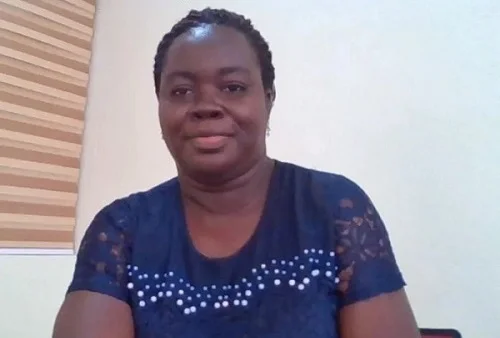Hot!
Exit of 18 NPP MPs could threaten Parliament’s capacity – Ahmed Ibrahim warns

The upcoming primaries of the New Patriotic Party (NPP) could have significant ramifications for Ghana’s Parliament, according to the First Deputy Minority Whip, Ahmed Ibrahim.
With 18 incumbent NPP MPs choosing not to seek re-election, the loss of institutional memory and expertise poses a serious challenge.
Comparing the NPP situation to the recent NDC primaries where 18 MPs were also ousted, Ahmed Ibrahim expressed concern about the trend of experienced lawmakers leaving Parliament.
He pointed specifically to the departure of Osei Kyei-Mensah-Bonsu, a veteran politician trained by the legendary JH Mensah, as a potential blow to Parliament’s capacity.
“The exit of Osei Kyei-Mensah-Bonsu who was trained by J.H Mensah, are you saying it is not going to have a negative impact on parliament, it will. As for representation, you will get somebody to represent you but as for replacement, you cannot replace the institutional memory and capacity of the exiting MP and that is how parliament is going to be negatively affected. We take you, invest in you and throw you out.”
He further argued that the government’s underutilization of experienced MPs contributes to their decision to leave. Citing examples like Joe Ghartey and Kwame Anyimadu-Antwi, Ibrahim highlighted their wasted potential and lack of meaningful roles within the government.
“You see Joe Ghartey, you see Kwame Anyimadu-Antwi which post is he holding, zero. Joe Ghartey which post is he holding, zero. I can mention the names of the seniors to you. Joe Ghartey was a former Attorney General and a former deputy speaker but he is there, his party is not using him so he sees himself as being underutilised. And do you think that when that happens he will contest again, he will not.”
“Kwame Anyimadu-Antwi was a law lecturer from Tech, he is here, they left him and took a first-timer as an Attorney General, Deputy Attorney General in those days. Anyimadu-Antwi is still there, a law lecturer, with 16 years in parliament.
Ibrahim urged the government to take proactive steps to retain experienced MPs and tap into their expertise. He emphasized the importance of recognizing their contributions and offering them roles that utilize their skills and knowledge.
Source: Citinewsroom.com
Hot!
Swedru All Blacks back to winning ways, Roshan humble King Faisal

Sekondi Rospak FC made it eight wins in eight successive home games after three second-half goals from John Amoah, Joseph Ntow and Stephen Anthony Kofi. John Amoah opened the scoring in the 55th minute after a barren first half. Joseph Ntow added to the tally in the 56th minute before Stephen Anthony Kofi rounded things up in the 74th minute to give Rospak a 3-0 win over former Premier League side King Faisal.
Elsewhere at Swedru – leaders Swedru All Blacks humbled PAC Academy in an emphatic 2-0 win. Zayat Bubakari scored first for Swedru All Blacks in the 27th minute before Rudolf Junior Nana Kwasi Mensah made it 2-0 in the 34th minute. Swedru All Blacks are top of the table with 36 points – 4 points ahead of second placed Rospak FC.
Meanwhile, Former Premier League side Cape Coast Mysterious Dwarfs recorded their fourth successive home victory after beaten New Edubiase United 2-1 at the Robert Mensah Park. Enoch Odoom struck first for Cape Coast Mysterious Dwarfs in the 19th minute but Steven Asante equalized for New Edubiase United before halftime. After the interval, Godfred Eshun scored from distance in the 65th minute to help Cape Coast Mysterious Dwarfs secure all the points.
Here are the results in Zone Two

Hot!
Cervical Cancer alert: Avoid sex at early age

The Programmes Manager of Non-Communicable Diseases (NCDs) of the Ghana Health Service (GHS), Dr Mary Efua Commeh, has advised young girls to avoid sex at an early age.
This, she explained, will give the cervix the opportunity to mature before they become sexually active.
“You need to delay what we call the first sexual intercourse as much as possible to give the cervix the opportunity to mature before the person becomes sexually active,” she said.
Dr Commeh stated this in an interview with The Spectator in Accra on Tuesday as a part of the Cervical Cancer awareness month.
According to her, cervical cancer was the second leading female cancer in Ghana with a total of about 3,072 cases annually, and out of that, 1,815 deaths are recorded, representing more than 50 per cent.
She indicated that “If young girls are going to be sexually active, then you need to talk to your parents about being vaccinated.”
She explained that vaccinating young girls against human papillomavirus (HPV) has been found to be a very effective way of preventing cervical cancer.
“There are countries that started HPV vaccination years ago and they are not seeing any cervical cancers now because they would have eliminated most of the high-risk HPVs in their women. So if the high-risk HPV is not there, then obviously the results on cervical cancers are going to go down,” she added.
Dr Commmey said the HPV vaccination is recommended for young girls aged nine to 14 years, adding that it had been found to be highly effective, not just for cervical cancers but for other HPV-related cancers, such as anal cancers, cancers of the vagina, genital warts, amongst others.
She further elaborated that the idea is to put up a barrier before the HPV comes in and that once a young female encounters it, she is already protected.
She also mentioned that for cervical cancers, the main cause is called HPV infection, saying generally, all sexually active women acquire HPV at some point in their lives.
However, the Programmes Manager of NCDs at the GHS mentioned that the body has a way of clearing the HPV, explaining that it is a natural mechanism that goes on, unfortunately, there are a few women whose HPV persists.
Moreover, she noted that the numbers for Cervical Cancer tend to be much higher because at times, clients would wait, and try all sorts of medications before they finally report to the health facility saying “we actually lose some women before they get to the hospitals with over 75 per cent of the cases coming in its third and fourth stages.”
Dr Commey, therefore, called for public awareness while ensuring the availability of information for prevention and control.
By Jemima Esinam Kuatsinu







